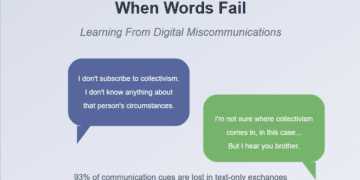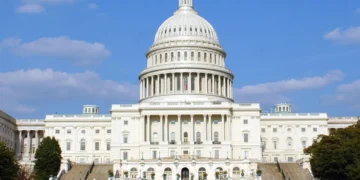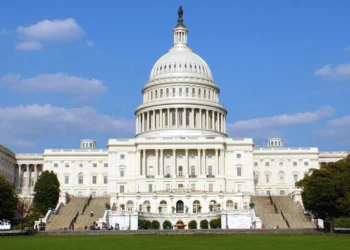Living paycheck to paycheck is stressful enough without the constant worry of unpaid bills piling up. As tempting as it might be to avoid opening those ominous envelopes from creditors, ignoring your financial obligations can snowball into lasting monetary damage. This blog breaks down common consequences of disregarding bills and provides actionable suggestions to alleviate economic anxiety.
Financial Repercussions of Disregarding Bills
Though tossing unopened statements might offer short-term relief, the implications of leaving bills unchecked are far-reaching. Below are some of the most common penalties people face from overlooking financial duties:
Plunging Credit Scores
Your credit score plays a major role in securing loans for big-ticket items like cars or homes. Consistently missing payments screams “high risk” to future lenders. A friend of mines dismissed a 30-day past due notice and was shocked when his strong 780 credit score plunged to 620 only six months later.
Most negative information remains on your credit report for up to seven years. My friend is now required to pay exorbitant interest rates thanks to his “Grade C” credit standing. Had he simply contacted his bank upon initial delinquency, he could have avoided significant damage. If you become delinquent, call creditors immediately to explain circumstances and negotiate alternative repayment solutions. This won’t eliminate consequences but shows good faith efforts to comply with obligations.
Compounding Late Fees
For cash-strapped individuals, late fees inflict additional unnecessary costs. Credit cards tend to charge tiered penalty rates, beginning around $15 for initial delinquency and ballooning up to $40 for advanced noncompliance. Student loans typically impose a fee equal to six percent of the missed payment.
Say you fail to submit a $300 minimum payment on time. Tack on a $40 late charge, and now you owe $340. Miss the next deadline, you’ll pay six percent on $340. And so the balance expands exponentially. I advise setting payment reminders to avoid snowballing late fees.
Wage Garnishment
When repeated contacts from collectors are ignored, they can petition to have a portion of your paycheck seized. Federal law dictates they can forcibly collect up to 25 percent of your disposable earnings or the amount that extends beyond 30 times the federal minimum wage.
So if you earn $1,500 biweekly and minimum wage stands at $7.25, collectors could siphon $225 per pay period. That painful bite makes it tough to cover existing expenses, let alone pay back what you owe.
Communicate with lending agencies BEFORE this last resort option plays out. There are options like debt management plans to regain control of your finances.
“Facing financial hardship is difficult but avoiding obligations will only exacerbate struggles. Reach out for help as soon as possible”.
How Missed Payments Spread
Most lenders don’t allow isolated incidents to slide without consequences. Frequently, the account enters default after 90 days without payment.
Default is like quick sand for your credit standing — it’s hard to escape once entered. All three major credit bureaus (Equifax, Experian and TransUnion) will be notified of your negligence.
This immediately sends your credit into free fall. Lenders share your info and suddenly no one wants to extend credit. Interest rates spike to exorbitant levels. Insurance companies view you as high risk and raise premiums. Even potential employers judge your reliability based on bungled bill management skills.
Buying a new house, renting an apartment or buying a car with deficient credit requires a cosigner and larger down payment. Landlords check applicant’s financial history to confirm tendency to pay rent reliably.
Simply put, overlooked obligations reverberate as dead credit weighting you down for years. Act decisively at first signs of financial struggle to restrict damage radiating into every area of life.
Collections Calls
Collectors purchase severely past due accounts for pennies on the dollar hoping to recover a portion of losses. They use auto-dialers and pre-recorded messages requesting contact about “an important business matter” to anonymous phone numbers they’ve scraped together.
If you answer, collectors often use dubious scare tactics about destroying your credit, garnishing wages, even arresting debt dodgers. Don’t take verbal threats at face value. Ask for official documentation on authority to collect if you suspect unfair manipulation.
Under the Fair Debt Collection Practices Act, collectors cannot paste debt notices on your home, contact you before 8 A.M. or after 9 P.M., call after requesting no further contact, nor discuss your financial affairs with unauthorized parties.
Familiarize yourself with debt collection laws so consultants don’t illegally coerce payments.
Destroyed Savings
Another friend of mines admits blowing through a modest $15,000 nest egg built over 15 years by withdrawing funds every time she fell behind on unmanageable credit card debt. Banks send cash advances despite recognizing you can’t afford more credit. After all, they profit from interest and penalties too!
Within a year of ignoring payments, her savings vanished as she continually pulled money to satisfy lenders temporarily. Unfortunately, spending everything you’ve worked years to save only postpones the inevitable need to address excessive obligations.
Steps to Tackle Financial Difficulties
If income no longer covers expenses, ignoring the problem merely intensifies consequences. Let’s review proactive solutions to stabilize finances before circumstances become unrecoverable:
Communicate Needs
Contact all lenders explaining your situation honestly and request options based on demonstrated need. Most want to retain your business, so they’ll offer alternatives like:
- Reduced minimum payments
- Lower interest rates
- Extended payment plans
- Settlement agreements
Engage consultants as soon as possible. Waiting until accounts default severely restricts relief options.
Seek Debt Relief Resources
Reputable nonprofit credit counseling agencies offer free or very low-cost services to craft personalized Debt Management Programs (DMPs). They contact all your creditors and negotiate:
- Lower interest rates (typically 0-6%)
- Waived late fees
- Consolidated payments
Counselors then work with you monthly to ensure adherence so all balances are repaid in full over about 5 years without damaging credit scores. This requires ceasing usage of credit cards while in repayment plans.
Explore Debt Consolidation
Bundling multiple high interest debts into a large singular payment each month provides structured plans. Options include:
- Balance transfer credit cards: These offers allow transferring outstanding balances onto a new card charging 0% APR for a promotional period, usually 6-21 months. This “saves” significant interest payments in short term. Ensure you CAN pay entire balances when rates jump post-promotion because deferred interest from initial 6-21 months gets tacked onto remaining principal.
- Consolidation loans: Banks agree to pay off debts in full and extend a fixed rate closed end loan with single monthly payment. Often qualification requires collateral like home equity along with strong credit.
- 401(k) Loans: For qualifying job-based retirement accounts, federal law allows borrowing up to $50,000 or 50% of vested balance. This converts retirement funds into direct loans charging around 5% interest. Risks include losing job (balance immediately due) and losing market gains from removed investments.
Weigh all alternatives against your situation to make informed financial decisions.
Consult Bankruptcy Attorneys
Filing bankruptcy stops wage garnishment, lawsuits, harassment calls while halting interest accumulation. Assets like homes or cars may be retained depending on chapter filed. Bankruptcy ruins credit for 10 years but offers fresh start once debts eliminated. Counsel with qualified attorneys to discuss process and long-term consequences before pursuing this nuclear option.
——
Missed financial obligations generate serious ripple effects destroying credit, savings and peace of mind. Avoidance merely magnifies consequences signaling the urgent need to address issues head-on. Commit to consistent open communication with lenders. Seek nonprofit credit counseling assistance. Most importantly, know there ARE solutions to regain financial control, even in darkest moments. You have power to reverse course and rebuild financial health one step at a time.
For more content, check out The Complete Guide to Personal Finance: In-Depth Answers to Your Credit and Debt Questions.
Disclaimer: The information provided in this blog post is for informational purposes only. It is not a substitute for professional advice. Always seek the advice of a qualified professional.
















































